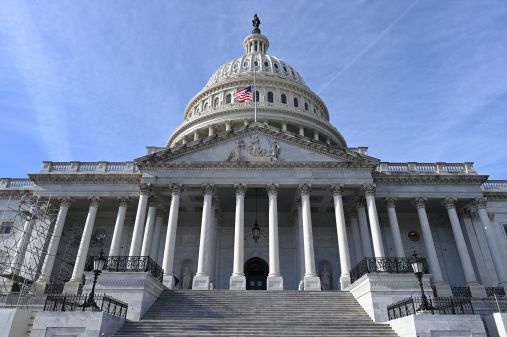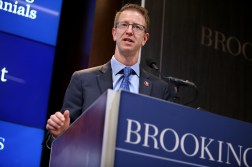Education Department is getting ‘smarter’ about hiring, training data scientists

The Department of Education is crafting its first data-focused workforce plan with an emphasis on the professional development of both data professionals and general staff, according to Deputy Chief Data Officer for Analytics Sharon Boivin.
The Office of the CDO — established just under two years ago in response to the Foundations for Evidence-Based Policymaking Act — is supporting other parts of the department by creating standard position descriptions for data professionals and career ladders for data scientists.
OCDO had to staff up fairly quickly and hired several master’s- and PhD-level data scientists, some straight out of school or with industry experience, under the Office of Personnel Management‘s 1530 statistics series last year. The office will continue to leverage such governmentwide opportunities, Boivin said.
“We’ve gotten smarter in what we ask for in vacancy announcements,” Boivin said during a Data Coalition event Thursday. “We now specify technical skills in the required specialized experience statements, and we’ve started asking for a code sample from each applicant.”
The latter keeps people who don’t have code samples from applying, which is a good thing, she added.
OCDO handles data governance, information collection, infrastructure, analytics, and data access including open data for the department, and its data professionals are involved in monitoring grants, performance measure analysis, distributing student financial aid, and planning for future budget and workforce needs.
New data scientist hires need to fit team needs, rather than being unicorns who can do it all, Boivin said.
Some prefer coding in Python, Stata, SAS or R languages and making data visualizations using Tableau, Power BI, R Shiny or Excel. But they also need domain knowledge and a strong foundation in statistics, Boivin said.
OCDO is considering university partnerships to better communicate hiring opportunities.
The office recently released a new Education Data Strategy, and one of the four goals is building human capacity to leverage data effectively for decision making. That includes filling short- and long-term staffing needs, launching a data literacy program for general staff, and an emerging program for education data professionals.
OCDO is also rolling out a Data Professionals Community of Practice and is structuring its curriculum with learning pathways, short topics, presentations, a mentoring program, and career paths and competencies for every General Schedule level in areas like data analytics and data architecture.
A final endeavor the office is undertaking is sponsoring rotational assignments that allow education staff to come in, learn and return to their home office with new data skills and a better understanding of the government’s data priorities, Boivin said.

This story was featured in FedScoop Special Report: Government Powered by Data - A FedScoop Special Report






